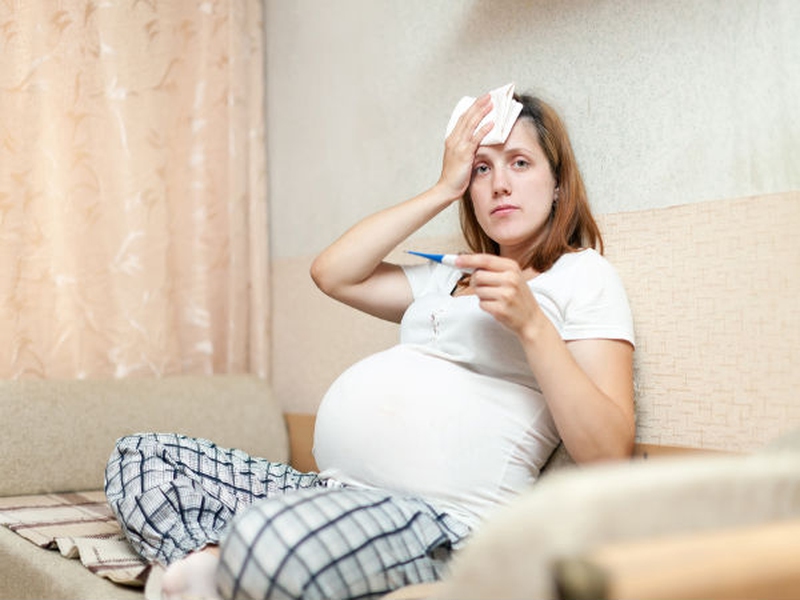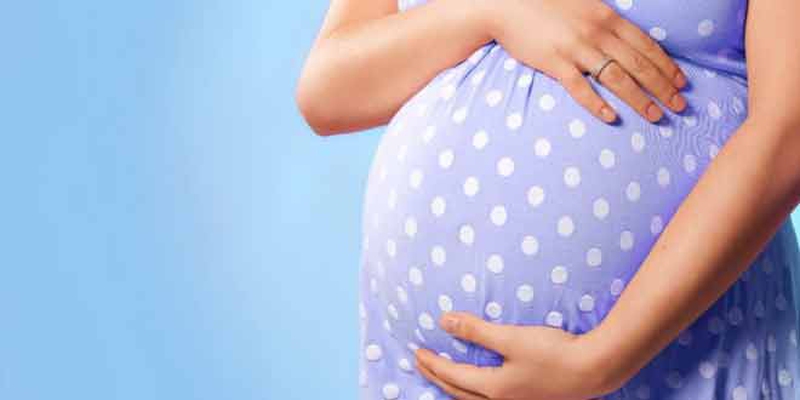There are many symptoms you might have that indicate you could be dehydrated. Feeling thirsty constantly, feeling light-headed, having dry skin or lips while you are pregnant are clear indications that you are dehydrated. It isn't something you want to ignore while pregnant since it can lead to serious consequences even death. Know all the facts and concerns about it here for preventing and avoiding it in the first place.

Symptoms of Dehydration During Pregnancy
There are many symptoms of dehydration. Learning these symptoms can help reduce the risk of serious complication during pregnancy. Some of the most common symptoms can include:
Your body has a difficult time regulating its normal body temperature. Referred to as maternal overheating, this is a clear sign of dehydration.
Feeling thirsty continuously is one of the most unnoticed signs of dehydration.
When you are dehydrated, your blood pressure drops. When this occurs, you will often feel light-headed, dizzy or even instances of vertigo when you stand up, kneel or bend over.
Migraines and frequent headaches are also a common symptom of being dehydrated.
Urine that is dark yellow in color and also presents a strong odor.
Frequent Braxton hicks contractions.
Skin that has lost elasticity.
Dry mouth or skin.
Chapped lips.
Swollen tongue.
Having abdominal pain or cramps along with vomiting or nausea.
Feeling tired or fatigued more often.
Constipation is often one of the first signs of dehydration.
Severe cases of dehydration can cause additional symptoms which include:
Feeling weak.
Unable to concentrate.
Constipation.
Urinary tract infections.
Piles.
Reduce sweating or inability to produce tears.
Effects of Dehydration During Pregnancy
For the mother
Dehydration can make morning sickness worse and last all day long since the lack of fluids can bring on nausea. When feeling nauseous, the mother is less likely to drink fluids and then causes the dehydration to worsen. This may require medical attention where IV fluids will be given.
Pregnant women may also notice spotting that can be caused by dehydration. Spotting can occur when the baby's sac breaks from the uterus which is caused by muscle stiffness due to dehydration.
Dehydration also causes the body temperature to rise which can cause heat stroke, fever, muscles cramps, heat exhaustion, urinary tract infections and other heat-related complications.
For the baby
Severe complications can occur because the fetus will not receive enough amniotic fluids itself. This can have a negative effect on the growth of the fetus. If there is not enough amniotic fluid, the fetus may rest on the uterus instead of floating, which can result in a deformation of the feet or hands.
Continuous dehydration in the second and third trimester can result in premature birth. Dehydration increases the oxytocin levels because of the decrease in blood flow. This, in turn, causes contractions that can result in premature labor.
After pregnancy dehydration can still pose problems. If breastfeeding, dehydration can lead to low breast milk production.
How Much Water Do You Need While Pregnant?
It is vital for both mother and fetus to consume the proper amount of water during the whole pregnancy. Pregnant women should consume at least nine 8 oz. glasses of water daily. During the first few months of the pregnancy, water is necessary to help the formation of the placenta, so the fetus receives the proper nutrients. As the pregnancy progress, water is necessary to help the amniotic sac develop.
One of the best ways to gauge if you have consumed enough water is to check the color of your urine and how often you use the restroom. If you use the restroom frequently and your urine is a light yellow or clear, this is good indication you are well hydrated.
How to Prevent or Manage Dehydration During Pregnancy
One of the first things to focus on to prevent dehydration is to consume more water. You can also get enough fluids from other sources like juices and milk, but you should be aiming to drink enough water. Aside from increasing your fluid intake, there are additional measures you can take to prevent and manage dehydration.
Drink when you feel thirsty. Feeling thirsty is often the first sign that your body lacks the proper fluids. If it is warmer out, you should be drinking even more fluids to stay hydrated.
For nausea and increased vomiting with dehydration while pregnancy, you might consider take anti-nausea medicines. Vitamin B6 has been recommended to reduce nausea and is safe to take while pregnant.
Avoid consuming too much caffeine. Coffee, sodas and many fruit juices contain a high amount of caffeine, which can lead to dehydration since it acts as a diuretic without rehydrating the body.
Call your doctor if you have any symptoms of dehydration during pregnancy that don't go away. Feeling overly exhausted, weak, dizzy, or having a headache that gets worse or does not go away can all be a cause for concern. Your doctor will be able to determine if you need to receive an IV to replenish the fluids in your body. It is always best to consult your doctor if you feel you may be dehydrated prior to drinking sports drinks or other drinks that contain electrolytes. These types of drinks may have side effects during pregnancy that you will want to learn about from your doctor or midwife.


View All Comments /Add Comment